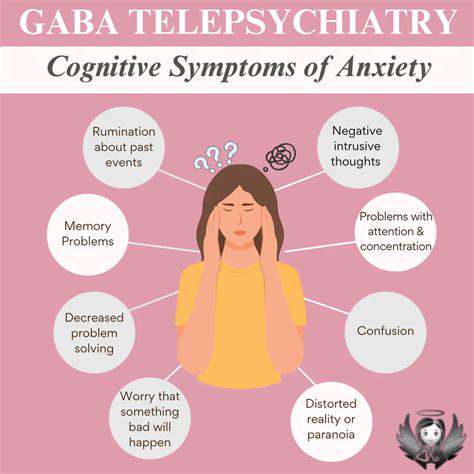Identifying High Functioning Anxiety Symptoms: What to Know
Cognitive Symptoms: How Your Thoughts Reveal Anxiety

Cognitive Symptoms of a Medical Condition
Our thought patterns often provide the clearest window into anxiety's presence. These mental symptoms frequently slip under the radar because they lack obvious physical markers. They manifest as background noise in our minds - persistent worries, racing thoughts, or difficulty concentrating that we learn to live with rather than address. Learning to recognize these cognitive patterns represents a crucial step in managing anxiety effectively.
Memory Issues: A Common Cognitive Symptom
Anxiety scrambles our ability to process and recall information efficiently. Important details slip away while insignificant worries replay endlessly. This selective memory - where fears feel vivid but practical information fades - creates frustrating gaps in daily functioning. Many people mistake these lapses for early dementia when they're actually signs of an overtaxed nervous system.
Attention and Concentration Difficulties
Focus becomes fragmented as the anxious mind constantly monitors for threats. Reading a page might require multiple attempts as thoughts intrude. This scattered attention isn't a lack of discipline but rather a brain prioritizing survival over productivity. The harder someone tries to concentrate, the more their anxiety may undermine their efforts.
Language and Communication Challenges
Anxiety ties our tongues in subtle ways. Words might escape us mid-sentence, or we might over-explain simple points fearing misunderstanding. Social interactions become mentally taxing as we second-guess every statement and analyze every response. What should feel like natural conversation turns into a high-stakes performance.
Executive Functioning Impairments
Daily planning and organization suffer when anxiety takes hold. Simple tasks feel overwhelming as the brain struggles to sequence steps logically. Decision-making becomes agonizing as every choice carries imagined catastrophic consequences. What looks like poor time management often reflects an anxious brain's difficulty prioritizing amid perceived threats.
Perceptual and Visual-Spatial Deficits
Anxiety literally changes how we see the world. Details might appear sharper while the bigger picture blurs, or vice versa. This altered perception can make familiar environments feel strangely threatening or confusing. Navigation difficulties might emerge not from poor sense of direction but from an overwhelmed nervous system.
Changes in Mood and Behavior
The cognitive toll of anxiety inevitably affects emotions and actions. Irritability flares over minor frustrations, or motivation vanishes for no clear reason. These shifts often confuse both the individual experiencing them and those around them. Recognizing them as anxiety symptoms rather than personal failings can be profoundly liberating.
Seeking Professional Help: When to Consult a Mental Health Professional

Seeking Support for Mental Well-being
Reaching out for professional help represents one of the bravest steps anyone can take toward mental wellness. Too many people suffer needlessly, believing their struggles aren't serious enough for therapy or that they should be able to handle things alone. In reality, mental health professionals provide valuable perspective and evidence-based strategies that can transform lives.
Understanding the Signs of Distress
Certain warning signs clearly indicate when professional support could help. When sleep disturbances, appetite changes, or mood swings persist beyond normal stress periods, they warrant attention. The very fact that you're questioning whether you need help often means you'd benefit from it. Trust that instinct rather than waiting for a crisis to develop.
Navigating the Process of Seeking Help
Finding the right therapist might require some trial and error, and that's perfectly normal. The therapeutic relationship itself serves as a powerful healing tool, so finding someone you genuinely connect with matters tremendously. Initial consultations allow you to assess whether a clinician's approach aligns with your needs before making any commitments.
Choosing the Right Support System
Professional help works best when combined with a strong personal support network. Loved ones who educate themselves about anxiety can provide invaluable understanding and practical assistance. Support groups offer the unique comfort of connecting with others who truly get it, reducing the isolation anxiety often creates.